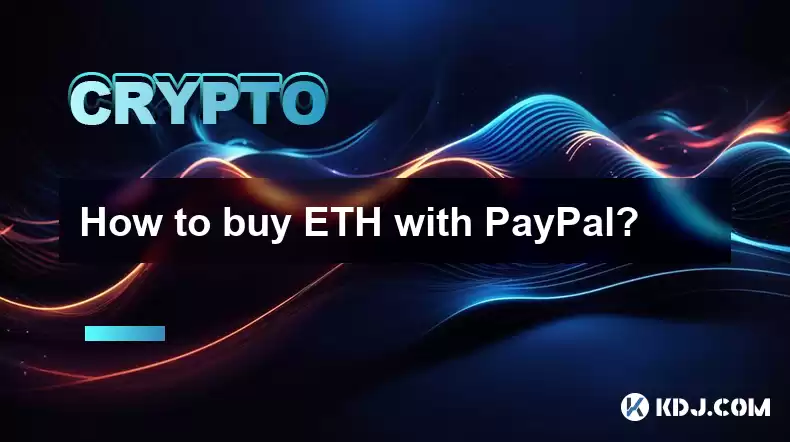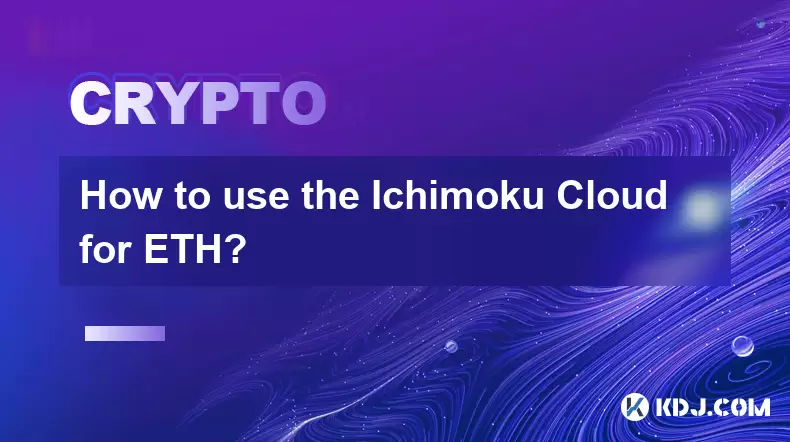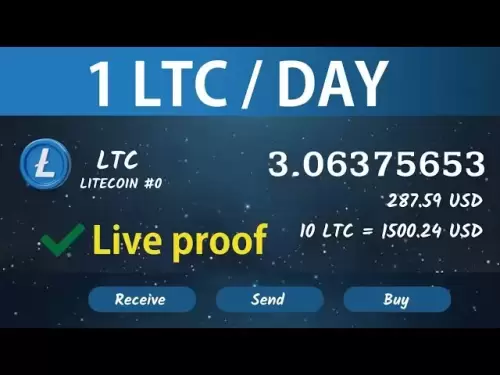-
 Bitcoin
Bitcoin $118900
0.42% -
 Ethereum
Ethereum $3710
-2.88% -
 XRP
XRP $3.513
-2.96% -
 Tether USDt
Tether USDt $1.000
-0.01% -
 Solana
Solana $203.0
3.65% -
 BNB
BNB $765.5
-1.29% -
 USDC
USDC $0.9998
0.00% -
 Dogecoin
Dogecoin $0.2671
-4.18% -
 Cardano
Cardano $0.8817
-3.63% -
 TRON
TRON $0.3139
-0.64% -
 Hyperliquid
Hyperliquid $44.34
-5.45% -
 Stellar
Stellar $0.4637
-4.08% -
 Sui
Sui $3.908
-2.59% -
 Chainlink
Chainlink $19.34
-2.62% -
 Hedera
Hedera $0.2712
-3.77% -
 Avalanche
Avalanche $24.97
-4.13% -
 Bitcoin Cash
Bitcoin Cash $519.8
-1.48% -
 Shiba Inu
Shiba Inu $0.00001518
-3.74% -
 Litecoin
Litecoin $115.6
-2.21% -
 Toncoin
Toncoin $3.460
3.68% -
 UNUS SED LEO
UNUS SED LEO $8.977
-0.07% -
 Polkadot
Polkadot $4.460
-2.96% -
 Uniswap
Uniswap $10.53
-5.43% -
 Ethena USDe
Ethena USDe $1.001
0.01% -
 Monero
Monero $323.6
-0.36% -
 Pepe
Pepe $0.00001379
-2.60% -
 Bitget Token
Bitget Token $4.772
-3.90% -
 Dai
Dai $0.9999
0.00% -
 Aave
Aave $307.5
-6.66% -
 Bittensor
Bittensor $441.8
0.84%
How to buy ETH with PayPal?
To buy ETH with PayPal, choose a reputable exchange like eToro, Coinbase, or Paxful, set up and verify your account, deposit funds via PayPal, and complete the purchase on the platform.
Apr 18, 2025 at 06:14 am

Introduction to Buying ETH with PayPal
Purchasing Ethereum (ETH) using PayPal has become a convenient option for many crypto enthusiasts due to its widespread acceptance and ease of use. This article will guide you through the process of buying ETH with PayPal, detailing each step to ensure a smooth transaction. Whether you are new to cryptocurrencies or an experienced trader, understanding how to use PayPal to buy ETH can enhance your trading capabilities.
Choosing a Suitable Exchange Platform
To buy ETH with PayPal, you must first select a reputable cryptocurrency exchange that supports this payment method. Some well-known platforms that allow PayPal transactions include eToro, Coinbase, and Paxful. Each platform has its own set of features, fees, and user interfaces, so it's important to choose one that aligns with your needs.
- eToro is known for its social trading features, allowing users to follow and copy trades from experienced traders.
- Coinbase is popular for its user-friendly interface and strong security measures.
- Paxful offers a peer-to-peer marketplace, which can be beneficial for those seeking more flexibility in their transactions.
Before proceeding, ensure that the chosen platform is available in your region and supports PayPal as a payment method.
Creating and Verifying Your Account
Once you have selected an exchange, the next step is to create an account. Follow these detailed steps to set up and verify your account:
- Visit the chosen platform's website and click on the "Sign Up" or "Register" button.
- Enter your personal information, including your name, email address, and a strong password.
- Complete the verification process, which usually involves submitting a government-issued ID and proof of address. This step is crucial for complying with anti-money laundering (AML) and know-your-customer (KYC) regulations.
- Wait for the verification to be completed, which can take from a few minutes to several days, depending on the platform.
After your account is verified, you will have full access to the platform's features, including the ability to buy ETH with PayPal.
Depositing Funds via PayPal
With your account set up and verified, the next step is to deposit funds into your exchange account using PayPal. Here's how to do it:
- Log into your exchange account and navigate to the "Deposit" or "Funds" section.
- Select PayPal as your payment method. You will be redirected to the PayPal website.
- Log into your PayPal account and authorize the transaction. The amount you wish to deposit will be debited from your PayPal balance or linked bank account.
- Confirm the transaction and wait for the funds to be credited to your exchange account. This can take a few minutes to a few hours, depending on the platform and PayPal processing times.
Once the funds are in your exchange account, you are ready to purchase ETH.
Buying ETH with PayPal
Now that your exchange account is funded, you can proceed to buy ETH. Here’s how to complete the purchase:
- Navigate to the trading section of the exchange platform.
- Select ETH as the cryptocurrency you want to buy. You may see it listed as ETH/BTC, ETH/USD, or ETH/EUR, depending on the trading pair available on the platform.
- Enter the amount of ETH you wish to purchase. The platform will calculate the equivalent amount in your deposited currency.
- Review the transaction details, including the total cost and any applicable fees.
- Confirm the purchase. The exchange will process the transaction, and the ETH will be credited to your account wallet.
After the purchase is complete, you can view your ETH balance in your account and decide whether to keep it on the exchange or transfer it to a personal wallet for added security.
Withdrawing ETH to a Personal Wallet
For those who prefer not to leave their ETH on the exchange, transferring it to a personal wallet is a good option. Here’s how to do it:
- Choose a suitable Ethereum wallet, such as MetaMask, Ledger, or Trezor. Each type of wallet offers different levels of security and convenience.
- Set up and secure your wallet according to the provider’s instructions. This often involves creating a password and backing up your recovery phrase.
- Return to your exchange account and navigate to the "Withdraw" or "Send" section.
- Enter the wallet address where you want to send your ETH. Double-check the address to avoid sending funds to the wrong destination.
- Specify the amount of ETH to withdraw and review any associated fees.
- Confirm the transaction. The exchange will process the withdrawal, and your ETH will be sent to your personal wallet.
It’s important to note that withdrawal times can vary depending on network congestion and the exchange's processing speed.
Frequently Asked Questions
Q: Are there any fees associated with buying ETH using PayPal?
A: Yes, there are typically fees associated with buying ETH using PayPal. These can include exchange fees, PayPal transaction fees, and potential conversion fees if you are using a different currency. Always check the fee structure of both the exchange and PayPal before making a transaction.
Q: Can I use PayPal to buy ETH on any cryptocurrency exchange?
A: No, not all cryptocurrency exchanges support PayPal as a payment method. You need to choose an exchange that explicitly lists PayPal as an option for depositing funds.
Q: Is it safe to buy ETH with PayPal?
A: Buying ETH with PayPal can be safe if you use a reputable exchange and follow best practices for securing your account. Always use strong passwords, enable two-factor authentication, and be cautious of phishing attempts.
Q: How long does it take to buy ETH with PayPal?
A: The time it takes to buy ETH with PayPal can vary. Depositing funds via PayPal usually takes a few minutes to a few hours, while the actual purchase of ETH on the exchange can be almost instantaneous once the funds are available in your account.
Disclaimer:info@kdj.com
The information provided is not trading advice. kdj.com does not assume any responsibility for any investments made based on the information provided in this article. Cryptocurrencies are highly volatile and it is highly recommended that you invest with caution after thorough research!
If you believe that the content used on this website infringes your copyright, please contact us immediately (info@kdj.com) and we will delete it promptly.
- Telegram Crypto Wallet Lands in the US: A New Era for US Users?
- 2025-07-22 23:30:13
- BlockDAG, XRP Price, AVAX Price: What's the Buzz in Crypto Town?
- 2025-07-22 23:50:13
- Bitcoin DeFi Heats Up: Alkanes, Runes, and the ICP Connection
- 2025-07-22 23:50:13
- Meme Coin Mania: Dogecoin, PEPE, and the Crypto Presale Craze
- 2025-07-22 22:50:13
- Altcoin Rally Alert: Cardano, AVAX, and the Crypto Landscape in June 2025
- 2025-07-22 23:55:15
- Nicotine Pouches: A Sweet Threat to Teens' Gum Health?
- 2025-07-22 22:30:13
Related knowledge

What is Chainlink (LINK)?
Jul 22,2025 at 02:14am
Understanding Chainlink (LINK): The Decentralized Oracle NetworkChainlink is a decentralized oracle network designed to bridge the gap between blockch...

What is Avalanche (AVAX)?
Jul 22,2025 at 08:35am
What is Avalanche (AVAX)?Avalanche (AVAX) is a decentralized, open-source blockchain platform designed to support high-performance decentralized appli...

What is Polkadot (DOT)?
Jul 19,2025 at 06:35pm
Understanding the Basics of Polkadot (DOT)Polkadot (DOT) is a multi-chain network protocol designed to enable different blockchains to transfer messag...

What is Monero (XMR)?
Jul 21,2025 at 10:07am
What is Monero (XMR)?Monero (XMR) is a decentralized cryptocurrency designed to provide enhanced privacy and anonymity for its users. Unlike Bitcoin a...

How to add indicators to Ethereum chart on TradingView?
Jul 19,2025 at 07:15am
What Is an Ethereum Chart on TradingView?The Ethereum chart on TradingView is a visual representation of the price movement of Ethereum (ETH) over a s...

How to use the Ichimoku Cloud for ETH?
Jul 18,2025 at 09:56pm
Understanding the Ichimoku Cloud and Its ComponentsThe Ichimoku Cloud, also known as Ichimoku Kinko Hyo, is a versatile technical analysis tool that p...

What is Chainlink (LINK)?
Jul 22,2025 at 02:14am
Understanding Chainlink (LINK): The Decentralized Oracle NetworkChainlink is a decentralized oracle network designed to bridge the gap between blockch...

What is Avalanche (AVAX)?
Jul 22,2025 at 08:35am
What is Avalanche (AVAX)?Avalanche (AVAX) is a decentralized, open-source blockchain platform designed to support high-performance decentralized appli...

What is Polkadot (DOT)?
Jul 19,2025 at 06:35pm
Understanding the Basics of Polkadot (DOT)Polkadot (DOT) is a multi-chain network protocol designed to enable different blockchains to transfer messag...

What is Monero (XMR)?
Jul 21,2025 at 10:07am
What is Monero (XMR)?Monero (XMR) is a decentralized cryptocurrency designed to provide enhanced privacy and anonymity for its users. Unlike Bitcoin a...

How to add indicators to Ethereum chart on TradingView?
Jul 19,2025 at 07:15am
What Is an Ethereum Chart on TradingView?The Ethereum chart on TradingView is a visual representation of the price movement of Ethereum (ETH) over a s...

How to use the Ichimoku Cloud for ETH?
Jul 18,2025 at 09:56pm
Understanding the Ichimoku Cloud and Its ComponentsThe Ichimoku Cloud, also known as Ichimoku Kinko Hyo, is a versatile technical analysis tool that p...
See all articles

























































































